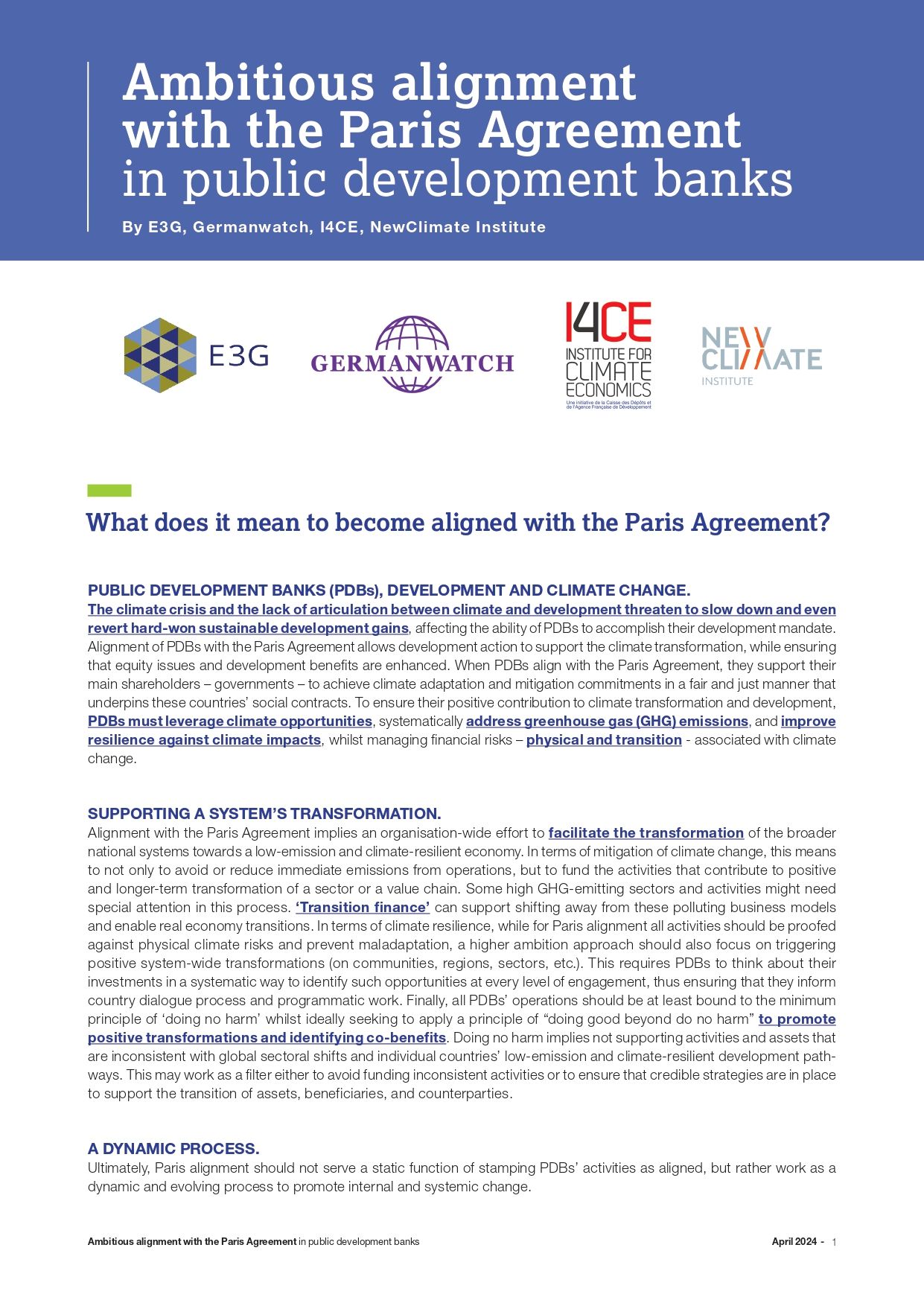Ambitious alignment with the Paris Agreement in public development banks
At the Spring Meetings, during an event with senior climate representatives from Multilateral Development Banks, I4CE, E3G, Germanwatch and NewClimate Institute officially launched a common position paper on what ambitous Paris alignment means for public development banks. This paper summarises years of research on Paris alignment to shed light on best practice and hopefully support decision makers in taking and implementing credible climate commitments.
What does it mean to become aligned with the Paris Agreement ?
Public development banks (PDBs), development and climate change
The climate crisis and the lack of articulation between climate and development threaten to slow down and even revert hard-won sustainable development gains, affecting the ability of PDBs to accomplish their development mandate. Alignment of PDBs with the Paris Agreement allows development action to support the climate transformation, while ensuring that equity issues and development benefits are enhanced. When PDBs align with the Paris Agreement, they support their main shareholders – governments – to achieve climate adaptation and mitigation commitments in a fair and just manner that underpins these countries’ social contracts. To ensure their positive contribution to climate transformation and development, PDBs must leverage climate opportunities, systematically address greenhouse gas (GHG) emissions, and improve resilience against climate impacts, whilst managing financial risks – physical and transition – associated with climate change.
Supporting a system’s transformation
Alignment with the Paris Agreement implies an organisation-wide effort to facilitate the transformation of the broader national systems towards a low-emission and climate-resilient economy. In terms of mitigation of climate change, this means to not only to avoid or reduce immediate emissions from operations, but to fund the activities that contribute to positive and longer-term transformation of a sector or a value chain. Some high GHG-emitting sectors and activities might need special attention in this process. ‘Transition finance’ can support shifting away from these polluting business modelsand enable real economy transitions. In terms of climate resilience, while for Paris alignment all activities should be proofed against physical climate risks and prevent maladaptation, a higher ambition approach should also focus on triggering positive system-wide transformations (on communities, regions, sectors, etc.). This requires PDBs to think about their investments in a systematic way to identify such opportunities at every level of engagement, thus ensuring that they inform country dialogue process and programmatic work. Finally, all PDBs’ operations should be at least bound to the minimum principle of ‘doing no harm’ whilst ideally seeking to apply a principle of “doing good beyond do no harm” to promote positive transformations and identifying co-benefits. Doing no harm implies not supporting activities and assets that are inconsistent with global sectoral shifts and individual countries’ low-emission and climate-resilient development pathways. This may work as a filter either to avoid funding inconsistent activities or to ensure that credible strategies are in place to support the transition of assets, beneficiaries, and counterparties.
A dynamic process
Ultimately, Paris alignment should not serve a static function of stamping PDBs’ activities as aligned, but rather work as a dynamic and evolving process to promote internal and systemic change.


